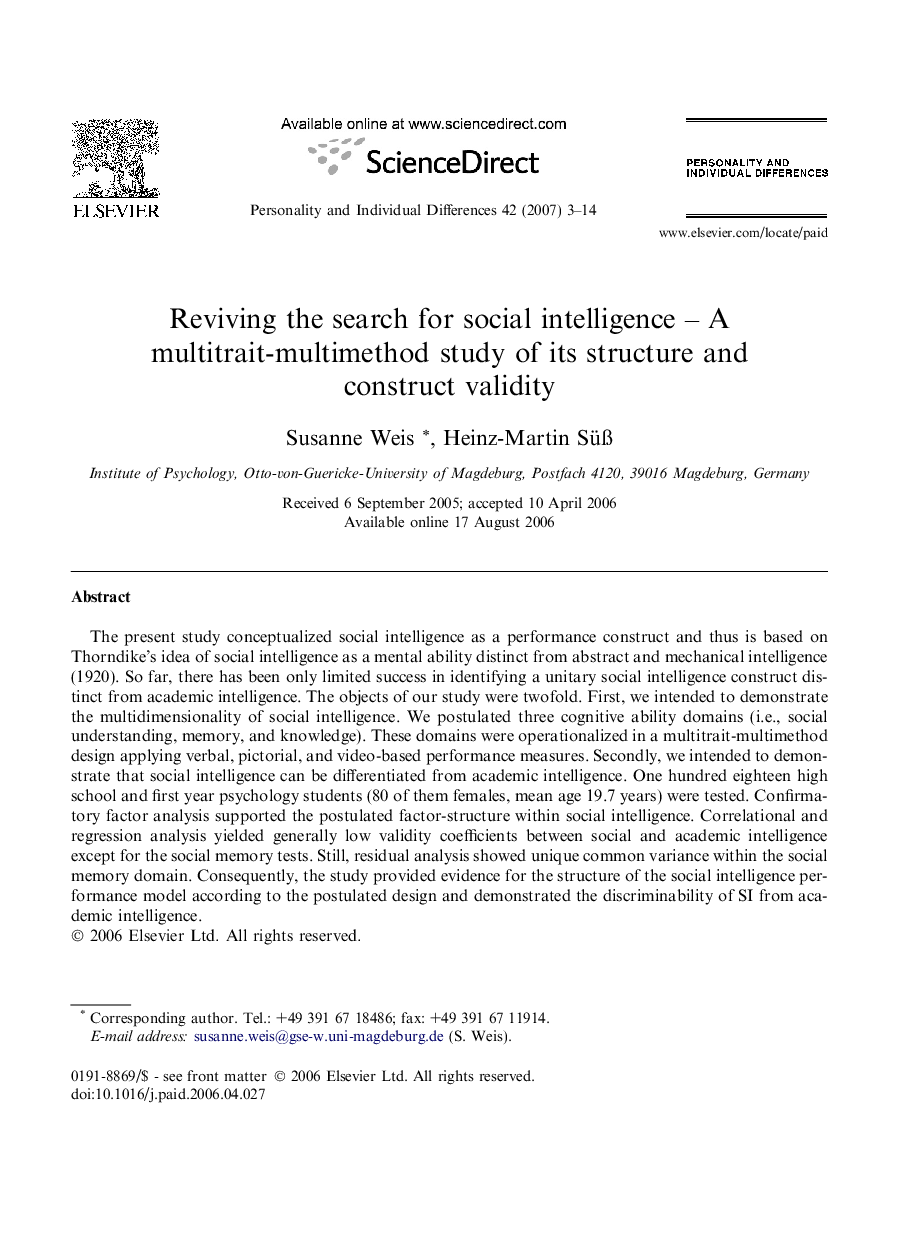| Article ID | Journal | Published Year | Pages | File Type |
|---|---|---|---|---|
| 893272 | Personality and Individual Differences | 2007 | 12 Pages |
The present study conceptualized social intelligence as a performance construct and thus is based on Thorndike’s idea of social intelligence as a mental ability distinct from abstract and mechanical intelligence (1920). So far, there has been only limited success in identifying a unitary social intelligence construct distinct from academic intelligence. The objects of our study were twofold. First, we intended to demonstrate the multidimensionality of social intelligence. We postulated three cognitive ability domains (i.e., social understanding, memory, and knowledge). These domains were operationalized in a multitrait-multimethod design applying verbal, pictorial, and video-based performance measures. Secondly, we intended to demonstrate that social intelligence can be differentiated from academic intelligence. One hundred eighteen high school and first year psychology students (80 of them females, mean age 19.7 years) were tested. Confirmatory factor analysis supported the postulated factor-structure within social intelligence. Correlational and regression analysis yielded generally low validity coefficients between social and academic intelligence except for the social memory tests. Still, residual analysis showed unique common variance within the social memory domain. Consequently, the study provided evidence for the structure of the social intelligence performance model according to the postulated design and demonstrated the discriminability of SI from academic intelligence.
